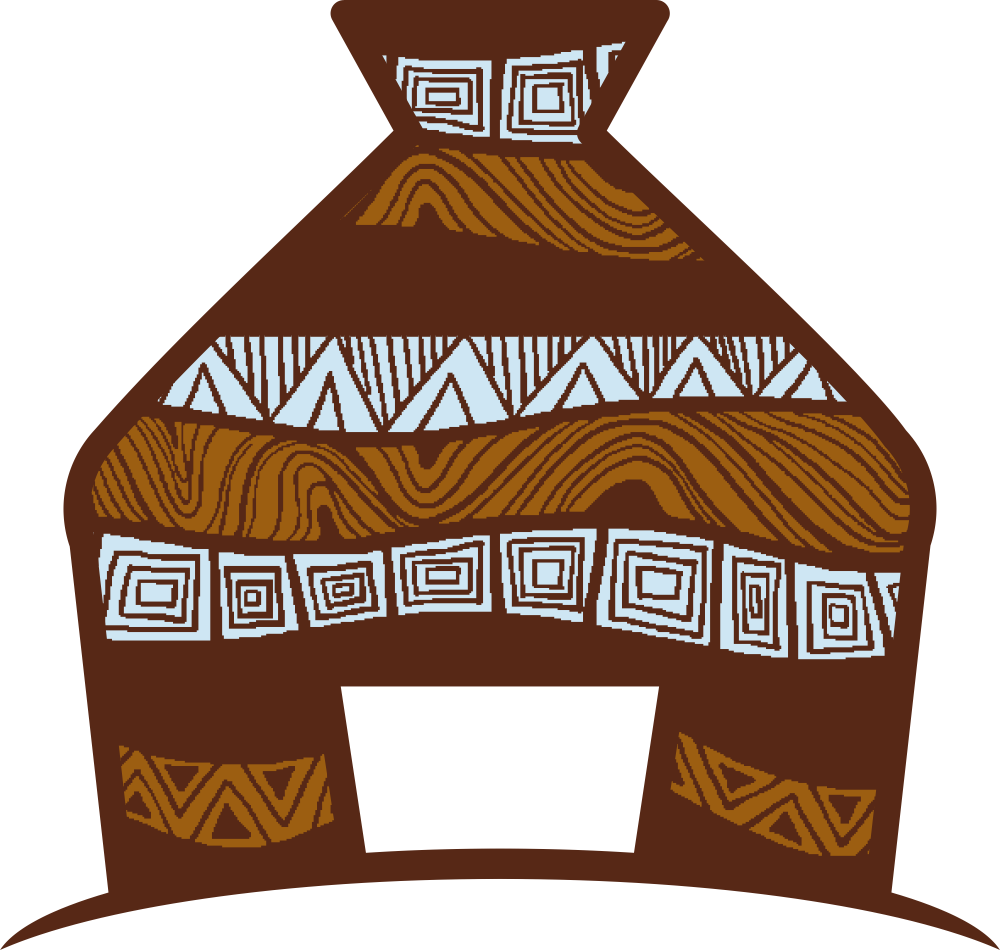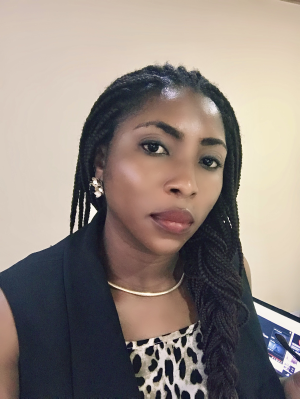Jakky Bankong-Obi is a media consultant and poet living and writing in Abuja, Nigeria. Her chapbook What Still Yields was chosen by Kwame Dawes and Chris Abani for publication in the New-Generation African Poets box sets, by Akashic Books and APBF (Spring/Summer 2022). Jakky has a BSc. in International Relations and is a Co-Editor at Ice Floe Press. Her work is forthcoming and in London Grip, The Kalahari Review, Reliquiae Journal (Corbel Stone Press), Pipewrench Magazine, Hobart Pulp, Gutter Magazine, The Poetry Review, Pigeonholes and Memento: An Anthology of Contemporary Nigerian Poetry etc. Jakky is on twitter as @jakkybeefive.
IE: Hello Jakky, I’ve been looking forward to this for a long time. Despite some hurdles, I’m glad we made it.
From what I’ve heard from mutual acquaintances/friends, you’re like one of the most supporting writers in the Contemporary African writing community, and to be this bedrock for so many young writers, you must have a bank of knowledge to share.
As supporting as you are, the gods (if you don’t mind me saying) have given you a gift in the form of your chapbook, What Still Yields (published by APBF). Tell me, what was your why behind creating this chapbook?
Jakky Bankong-Obi: Hi! Thank you so much for having me on this wonderful interview series. It’s my pleasure and privilege to speak with you.
Haha, I like this question, the gods did indeed gift me this amazing opportunity to get my chapbook published with the APBF. Truly a blessing! I mean, I have no idea about the support thing but our community is a supportive one and I have no bank of knowledge to share. We are all part of the community, we all just live our lives and do our part.
As for putting the chapbook together, it was all instinctual. Some of the poems had already been published while some were new. A poem or two may have been written during the submission window. I honestly enjoyed doing it. I’m glad I got to do it. The theme in the chapbook revolves around what I like to think my writing is about, which is always writing towards the idea of possibility etc. A lot of nature imagery in the poems invariably leads me there. The forms don’t necessarily matter, but the running thing one can observe from the natural world is that the cycle of birth, death and rebirth is always ongoing. Something always turns up. It’s sickeningly optimistic or simplistic, I know, but it is what it is. Hence, the title “What Still Yields.” Of course, that’s also the title of a poem that didn’t make the final cut yet the title seemed to fit and the editors were discerning enough to suggest we keep it.
IE: I appreciate the idea of unexpected possibilities and the ongoing cycles of life. Strangely, when I think of cycles, I always think of the Ouroboros because of how they depict a never-ending remake of one’s self. This makes me think of something you wrote in your poem, False Leads (published by Pipe Wrench): “…we do not have to go looking for some things to find us.”
What can you say differentiates New Testament and Old Testament African Writers concerning “the search?” Are things much easier in this age of Writers than before?
Jakky Bankong-Obi: I would say in terms of access to information and maybe resources, things seem easier now. The internet does make a lot more material available now than in the past but I don’t know if that translates to making the writing easier. Having more resources available doesn’t take away the fact of the writing. We are writing. We are trying our best to be better writers. I haven’t read a lot of commentary about past writers but they had a suffuse of great work and this is what we all aspire to do.
IE: Ha! I can certainly attest to the fact that writing is not easy. My process always includes sending my work to a friend and asking them what they think of it. To have that person in the process is such a big deal for me. When I think of community, it goes right next to some lines from Sleep Hygiene by Jill Khoury: “One should be able to enter the bed and think I could fly far away in this. I could die; I could just die.”
As earlier stated, you are one of the glues for so many writers, and in your own way have proved that there indeed is a covalent bond of a sort between New Testament African Writers, just as it was or even greater than in the Older Generation. However, from experience, I know that for some writers, due to hubris or the lack thereof, they do not have or feel the need for “community.”
Tell me, how do you keep walking?
Jakky Bankong-Obi: Like a good number of people that I know, I came into writing online. And when I started getting published, I found a lot of support from the writing community on Twitter. It’s only natural to want to give that back. And then of course, sometimes you become actual friends offline. I honestly find being friends with writers interesting. Most of it is new to me and I think to many of us. We are just living our lives, making space for each other to have great conversations and share experiences. I love being a part of the community. I like that I’m beginning to have writer friendships. It makes everything real.
IE: I’m glad you have a community, Jakkie.
Ocean Vuong said in an interview with The Guardian that he believes that there is a common anxiety for writers to establish a style, which also adds to a sort of limit for each writer. Do you think there is a limit that has been placed on New Testament African Artists about the style/theme of African Literature? To what extent has this limit affected you as a Writer?
Jakky Bankong-Obi: I honestly believe that one should write what one should write. My goal is always to write a good poem, regardless of what it is about or how the poem sounds. I don’t know how to debate the aesthetics of poems but it seems limiting to go into one’s writing with the idea of a particular “voice/style” and I refuse to bring that to my writing. As I said in another interview, we are who we are given the context of our experiences, influences and the times we live in. My goal is to be as organic and authentic as possible and to let the writing do its thing. And for it to be good. I want to be a good writer, regardless of subject matter or style. I’m always ready to learn whatever helps me do that, but I won’t start with the idea that writing towards a particular style is where it should be.
IE: “My goal is to be as organic and authentic as possible and to let the writing do its thing.” If you allow me, I’d have to add this to my slogans on “why I write.” Ha!
I believe that one big distinction between New Testament and Old Testament African Writers is the need for migration to “make it.” To compound on this idea, I would have to borrow something from what the 2022 Sillerman First Book Prize Winner, Tares Oburumu wrote in Shaped like a Globe: “Have mercy on me for being born & raised in lack. There’s a country caught in a net of blue instincts, how you swim out of it depends on how you can be the cult & turn on the national TV on yourself.”
Considering that, whatever is good for the Writer, is good for the Literature, how important do you think migration is for the New Testament African Writer?
Jakky Bankong-Obi: Let me just say the “New Testament African Writer” thing is killing me! Sounds so biblical! Well, as for migration, I’m not even sure how to respond. It sounds like we are policing each other. I don’t know what this has to do with the overall writing. It’s a personal issue. But I’ll say, take whatever opportunities you can to make your life better. I believe that’s all we hope for, better lives. The reality of being African and living on this beautiful continent is exactly what it is. Everyone has their dreams and aspirations, and a right to pursue them. We need to stop building centres of arguments around things like this. The truth is that if we had better here on the continent, people wouldn’t be clamouring to leave. We know that! The question of migrating is a personal issue and the point is to do what works for you.
IE: Oh, I’m sorry for making our keyword so biblical. I won’t be using the phrase in the next questions, I promise. Haha.
“Give no room for the old malice to creep in,” you wrote in your poem, Brazen (For My Grandmother). For me, the poem is like a Psalm where the persona relieves rituals or lessons from an older generation or a sage. Without uncertainty, we know we are our history, and everything we are is a result of our history. Knowing what you know about this current generation, if you had the opportunity to peel back things to the African Creative Art Industry, what would you change or introduce?
Jakky Bankong-Obi: I wish we had kept our oral traditions, history and rituals. I am lucky enough to have lived experiences with my grandparents and even my great-grandma, on my mother’s side, coupled with spending a good amount of time in the village. This helped me get some sense of tradition but I wish I had had more. I wish I had asked more questions, and learned more rituals and traditions. Colonialism and Christianity eroded so much of our cultures and at the time I was growing up, a lot of things had been tabooed. Still, I’m convinced my grandparents knew more and could have taught me if I had asked.
IE: I don’t know but grandparents or the older generation always had this openness to teaching if you asked them. I remember as a child, my grandmother made sure I understood the basics of my native language. My grandfather would never call me by any other name but my native name. There was this pride he felt whenever I answered our family compound name, Daigbani. So, yeah, I hope you get to travel back home, Jakkie. It’s going to be an advantage for me if you unearth any other tradition and write about it.
To close our session, it would fill my heart plenty if you left us with a snippet from your book and how those who haven’t read the collection yet can purchase it.
Jakky Bankong-Obi: Here is a snippet from the poem “Ideograms for the Hawk-Moth and for the Aftermath Fire” It’s a poem about night rendezvous and burning.
i. Dusk is something to wallow in.
ii. Antlers on a hilltop, sunned and bifurcating.
iii. scry of crow on the withering branch.
iv. Black shadows feathering secret rendezvous with home.
v. The gloaming, a masque headdress: relic of a time-honoured ritual of uncovering.
vi. Audience of crickets in the underbrush.
vii. whatever sees us, sees us.
IE: Thanks again for having this session with us. It’s a pleasure.
Jakky Bankong-Obi: It’s my pleasure and privilege. Thank you so much for having me.


